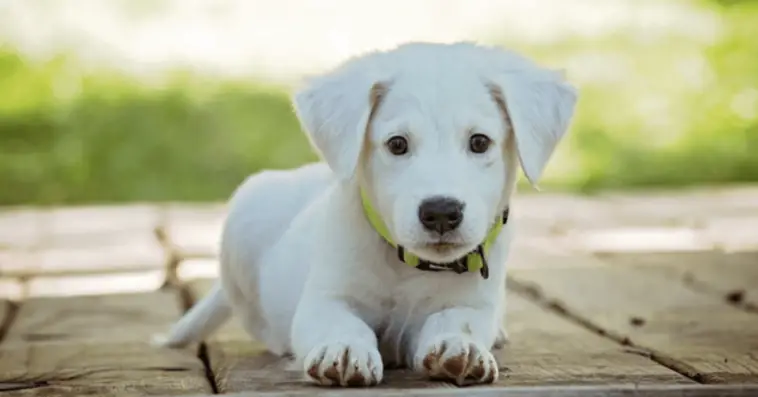Are you concerned ‘why do dogs constantly lick their anus?’ because your pet is doing the same?
If you are, then this post is for you. Here we will discuss:
- Tips to stop dogs from licking their anus
- 9 Reasons why do dogs constantly lick their anus?
- And more…
Why Do Dogs Constantly Lick Their Anus?
Dogs constantly lick their anus to groom themselves.They might also lick their anus due to anal gland issues or irritation, skin infections, parasites, and food allergies. Whenever dogs sit down and start licking their butts, it is usually a signal that their bottom area feels painful.
9 Reasons Why Do Dogs Constantly Lick Their Anus?
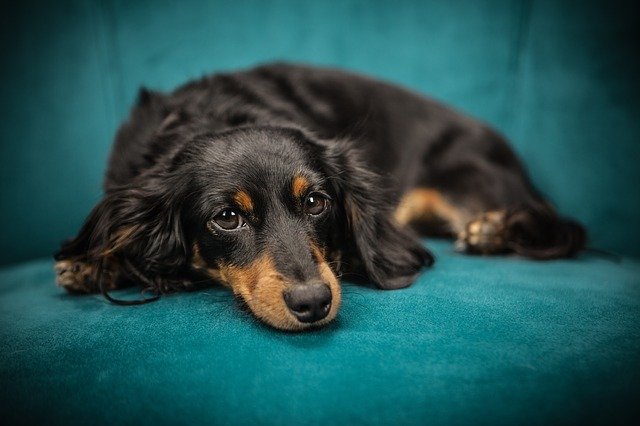
Here are some of the main reasons why dogs might constantly lick their anus:
1. To Groom Themselves
According to Dr. Ryal Llera, DVM, of the VCA Hospital both male and female dogs will lick their privates to clean and groom themselves. In addition to the penis (in male) and vulva (in a female), the dogs also clean and lick their anus.
Moderate licking, says Dr. Llera, is normal. Most dogs indulge in this behavior after urinating as the saliva helps clean the area.
However, Dr. Llera cautions that licking the anus is not really ‘normal behavior’ because it could be an indication that the dog’s stools are loose and sticky. That is why your dog might feel the need to clean the anus.
He further urges dog parents to take constant butthole licking seriously.
If you notice the following signs, please alert your vet:
- Swelling or redness in the anal region
- Black or rust colored discoloration
- Presence of foul or fishy odor
It is also important to distract your pet from licing or chewing the anus as it can lead to infections or worsen existing problems.
2. Anal Gland Issues
The second most common reasons why do dogs constantly lick their anus is anal gland issues. Anal gland issues can include one of the following
a) Anal gland is impacted/blocked
Anal glands or anal sacs are two glands present on either side of thedog’s anus. Dr. Llera explains that these glands can end up troubling some dogs while most dogs easily go all their lives without having any issue with them.
Dogs with anal gland impaction tend to show the following signs:
- Constantly licking or biting the anus
- Scooting their butts on the floor – you might see some secretions in the spot where it scoots.
- Foul odor – mainly fishy odor.
- Whining after/during pooping
In dogs with impacted or blocked anal sacs (also called anal sac disease), stool, water, and bacteria get accumulated in the sac.
Under normal circumstances, a dog is able to empty out these glands each time it has a bowel movement. (This is why a dog’s stools need to be small, dry, and firm so that they press against the anal glands on their way out and express them in the process).
But, a dog with chronic diarrhea, anal sac disease, or severe constipation will not be able to empty out the anal glands.
Resultantly, the water from the stool further gets absorbed into the glands, becomes a breeding ground for bacteria, and results in inflammation or infection.
The glands then continue filling up and the tissues in them get irritated and inflamed.
A vet can help express the glands to remove the accumulated debris in the glands. Some dog owners also perform the procedure at home. The following video can help you out:
In addition to expressing the anal glands regularly some diietary changes can also help. These include feeding your dog a fiber rich diet so its stools are firm, small, and dry and not loose or watery. Adding pumpkin to the diet can help.
You can also check out the Best Dog Food for Anal Gland Issues.
b) Anal gland abscess
According to PetMD, anal gland abscess is a swollen, pus-filled mass which results from an untreated anal infection. The abscess can rupture causing severe pain to the affected dogs.
Dogs with anal abscesses also constantly lick the anus to soothe the pain. If the abscess ruptures, your dog might need topical and oral antibiotics along with pain relieving medicines and warm compresses.
In dogs with recurrent anal gland issues, doctors tend to advise surgical removal of the anal sacs.
c) Anal tumors
According to the experts at Blue Pearl Vet, anal sac tumors can also cause a dog to constantly bite or lick the anus. Other signs of perianal tumors in dogs are:
- Straining to have a bowel movement
- Ribbon-shaped stools
- Increased calcium levels in blood which increase thirst, increase urination, decrease appetite, etc.
- Vomiting and weight loss can also occur.
Treatment includes surgery to remove the tumor. This can prolong and improve the quality of the dog’s life.
3. Bacterial or Fungal Infection
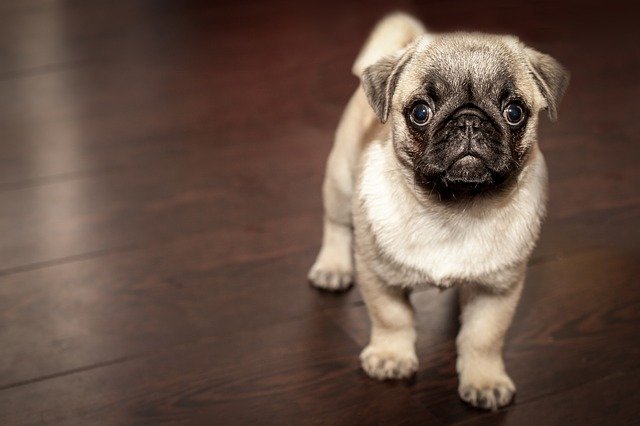
Infections caused by bacteria or fungi can also cause constant licking of the anal region in dogs.
1. Fungal infections
The experts at Bartlett Hillcrest Animal Hospital team state that fungal and yeast skin infections such as Malesezzia dermatitis can affect the dog’s skin near the anus, in the armpits, inside the ears, and even its nails. These could cause a dog to chew or lick the affected areas.
Such infections are typically seen in dogs with poor immunity. Often, the infections recur over and over and the treatment is also a long-term effort. Your vet will prescribe shampoos, lotions, and oral medicines to treat them.
2. Proctitis and bacterial infections of anus
Dog breeds like Boxers are prone to the inflammation caused by bacteria in the anal area. Symptoms of the disease include:
- Having several bowel movements throughout the day but producing very small amounts of stools
- Licking or biting the anus
- Semi-formed or loose watery stools
- The irritation of the anus can cause a dog to eat less and resultantly lose weight.
Causes of the bacterial infection of anus or rectum are bacterial algae, and intestinal parasites. A foreign object swallowed by the dog can also be the cause.
Treatment includes administering anti-inflammatory and immunosuppressive drugs, surgery for colitis, and treating underlying causes such as intestinal worms.
Also Read: 8 Main Reasons Why Dog is In Pain after Anal Glands Expressed
4. Parasites
There are two kinds of parasites that could result in constant anal licking in dogs:
a) Internal parasites/worms
Worms or intestinal parasites like pinworms and tapeworms can also cause anal licking. These worms are present in dogs’ intestines but they are excreted out in dog’s feces. These worms tend to cause diarrhea, appetite changes, and weight loss in dogs.
Dr. Francine Rattner, DVM states that tapeworms can cause an itchy anus in dogs because as the segments exit from the dog’s stool, they irritate the lining on their way out. Your dog might rub and scoot or lick and chew the anus to relieve the itchiness..
A dog with internal parasites might also show the following signs:
- Stomach pain- whining, walking with tail between the legs
- Deficiencies and anemia
- Vomiting
- Weight loss
- Poor coat
- Pot-belly
- Blood in stools.
Treatment includes a deworming protocol to be followed over several days. Your vet will also administer injections and advise a flea control regimen since many intestinal worms result from fleas.
b) External parasites
If your dog does not have impacted anal glands and yet constantly llicks its butthole, then external parasites could be the culprits.
Fleas, mites, and ticks are some of the common external parasites that can cause itchy skin around the perianal region. These parasites may not exactly bite the dog’s anus, but your dog might be allergic to fleas and flea allergy dermatitis can cause itchiness all over the skin.
If your dog is continuously licking or biting its privates and you see red blisters or rashes along with flea debris or engorged ticks in its coat, then you need to start flea/tick control medicine right away.
Fleas also contain tapeworm larvae and eggs and your dog could acquire tapeworm. As mentioned above, tapeworm segments can irritate your dog’s butthole and also cause it to lick the anus excessively.
5. Allergies
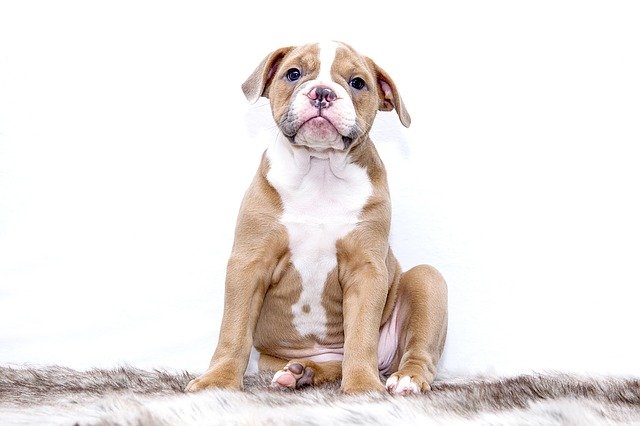
Food and environmental allergies can also cause a dog to be very itchy. Most dogs will scratch and chew other areas like paws and ears in addition to their itchy butt. This mainly depends on the kind of allergy it has. In dogs, allergies are mainly of the following type:
a) Food allergy
Food allergy can result from low quality foods containing fillers like wheat, soy, corn, and other grains.
Some sensitive dogs can also suffer from protein allergies and may not be able to withstand them. Signs of food allergies in dogs are:
- Skin allergy – itchy skin, ear infections, poor and dull coat, patchy hair loss
- Gastrointestinal symptoms – vomiting, diarrhea, flatulence.
For such dogs, vets recommend protein rotation and switching to hydrolyzed proteins or carefully prepared home-cooked diets.
b) Environmental allergy
These include allergies to fleas, dust mites, pollen, and grasses. They can also cause anal and skin itching. Most environmental allergies have symptoms similar to food allergies above.
The best way to avoid such allergies is to vacuum the home frequently , clean surfaces with wet wipes to reduce pollen, and also bathe or wash your dog’s paws frequently.
6. UTI/Urinary tract infection
According to Dr. Malcolm Weir DVM of VCA Hospitals, dogs with urinary tract infections will typically lick their privates to catch the dripping urine and soothe the pain. In the process, they might also end up constantly licking their anus.
This does more harm than good because the germs from the anus then get transferred to the urethra worsening the infection.
Female dogs are at a greater risk of this because of the shorter distance between the vulva and anus. Older dogs and dogs with diabetes are also susceptible to UTIs.
Signs of UTI in dogs are:
- Frequent urination – producing very few drops at a time
- Bloody urine
- Painful urination
- Licking privates
- Pain in abdomen, walking with the tail down.
Treatment includes antibiotics and pain medicine along with dietary changes.
7. Separation Anxiety
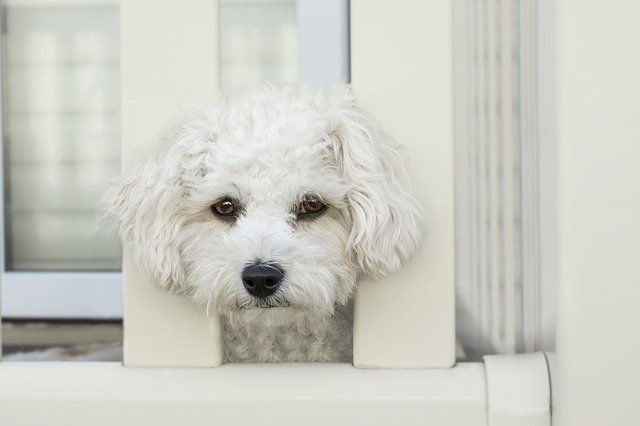
Ruth Hegarty, certified canine behaviorist, attributes excess licking of the anus in dogs to anxiety. Licking, says she, is a natural instinct in dogs. Dogs lick each other right from birth.
If a dog is anxious, especially anxious to be separated from the owners and left alone at home all day, it can lick itself to soothe or comfort itself.
Changes in a dog’s routine can also result in such behavior. Often, anxious dogs also lick their paws or a particular spot on the skin. The excessive licking can also result in lick granuloma or patchy hair loss.
Please see your vet if your dog’s anus licking gets out of hand.
You can also consider hiring a dog sitter, enrolling your dog in day school,or getting a second dog, if your pet is anxious due to being left alone all day.
Also Read: 10 Surprising Reasons Why Do Dogs Sniff Buttholes?
8. Boredom
There is no doubt that dogs indulge in all kinds of misbehaviors when they are bored. A bored dog might destroy furniture, urinate or defecate indoors and also lick excessively.
Again, most dogs might lick their paws, but some tend to lick their privates and anus. The AKC suggests these tips to recognize boredom in dogs:
- Making its own fun – destroying stuff, tearing up toilet paper
- Digging the yard and making a mess.
- Barking excessively
- Seeking attention
To alleviate boredom, provide your dog with plenty of toys, puzzles, and mental stimulation. You can also take it out on walks, car rides, etc.
Encourage your kids to play a game of fetch with your dog. A tired dog will seldom engage in licking or other misbehaviors.
9. Obsessive Compulsive Disorder
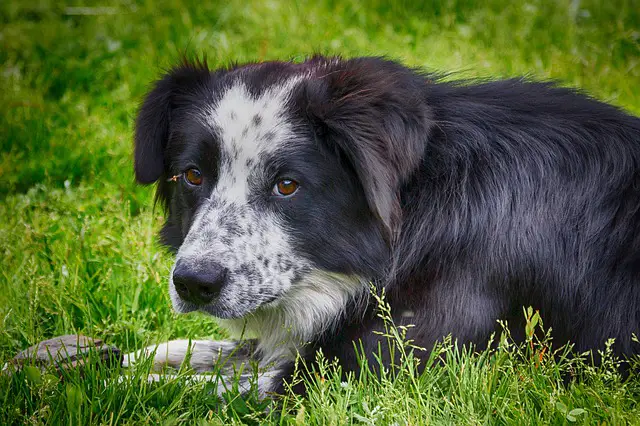
As per PetMD, dogs also indulge in repetitive licking, chewing, and biting due to OCD or obsessive compulsive disorder. Some signs of OCD in dogs are:
- Fastidious self-grooming
- Chasing the tail
- Pica – eating non-food items
- Pacing
- Fly biting
Causes of OCD include prolonged confinement, degenerative or age-related diseases like nervous-system changes, lead poisoning, etc.
Treatment includes behavior modification and anti-anxiety medication.
